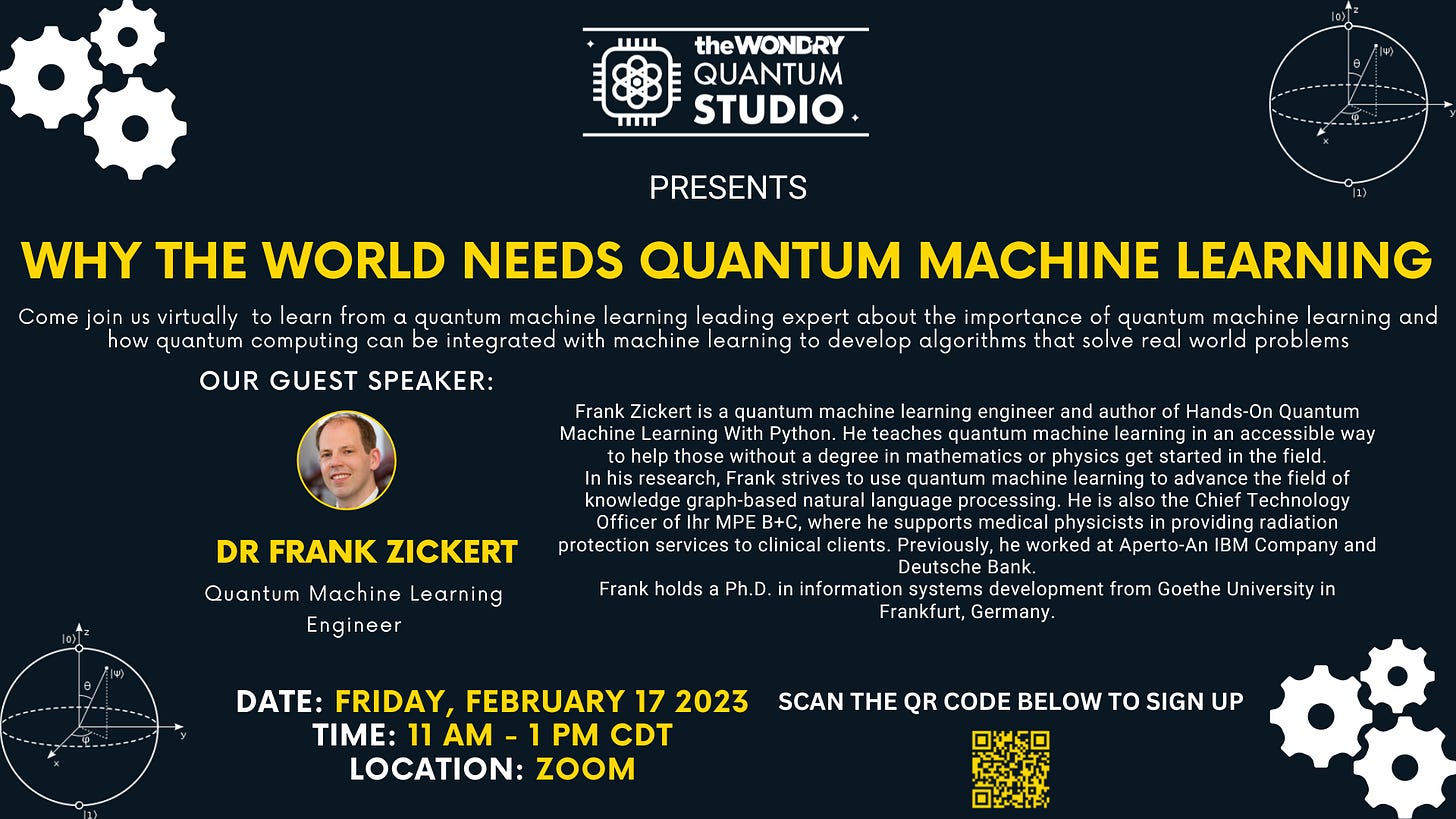Quantum Machine Learning is an exciting topic. Unfortunately, we often attach unrealistic ideas to QML. Since these are impossible to meet, we could end up in a QML winter - a period of reduced funding and interest in quantum machine learning research and applications.
To avoid ending up there, we must educate ourselves about the specifics of QML. We need to learn how QML works and assess what we can realistically do with it and what is pure science fiction. But that doesn't mean we all have to become physicists and mathematicians. We don't need another physicist in the lab to think about real-world problems. They're not going to come up with those insights.
We need professionals with practical domain knowledge to know what problems we should and shouldn't tackle with QML.
In my upcoming talk at the Wond’ry Quantum Studio, I will talk about why the world needs quantum machine learning and how to identify problems that are suited to be addressed.
In today’s post, I start by shedding some light on one potential area that could benefit from QML—that is defense.
I genuinely believe developers, programmers, and students with at least some programming experience can become proficient in quantum machine learning. However, teaching quantum machine learning the right way requires a different approach — a hands-on approach.
This is the approach of Hands-On Quantum Machine Learning With Python.
In the first volume, “Getting Started,” you will not only implement different quantum machine learning algorithms, such as Quantum Naïve Bayes and Quantum Bayesian Networks. But you will learn to use them to solve problems taken from Kaggle.
In the second volume, “Combinatorial Optimization,” you will learn how to solve current optimization problems on real quantum computers. We will dive deep into the Variational Quantum Eigensolver (VQE) and the Quantum Approximate Optimization Algorithm (QAOA) and use them to solve combinatorial optimization problems.
Hands-On Quantum Machine Learning With Python strives to be the perfect balance between the theory taught in a textbook and the actual hands-on knowledge you’ll need to implement real-world solutions.
Do you want to get started with Quantum Machine Learning? Have a look at Hands-On Quantum Machine Learning With Python.
Get the first three chapters for free.








Sir i have to share certain work to review it from you..Can i have any medium to share attachment file for reviewing it and getting comments..??
Sir which are good publications medium for quantum computing relevant stuff..??